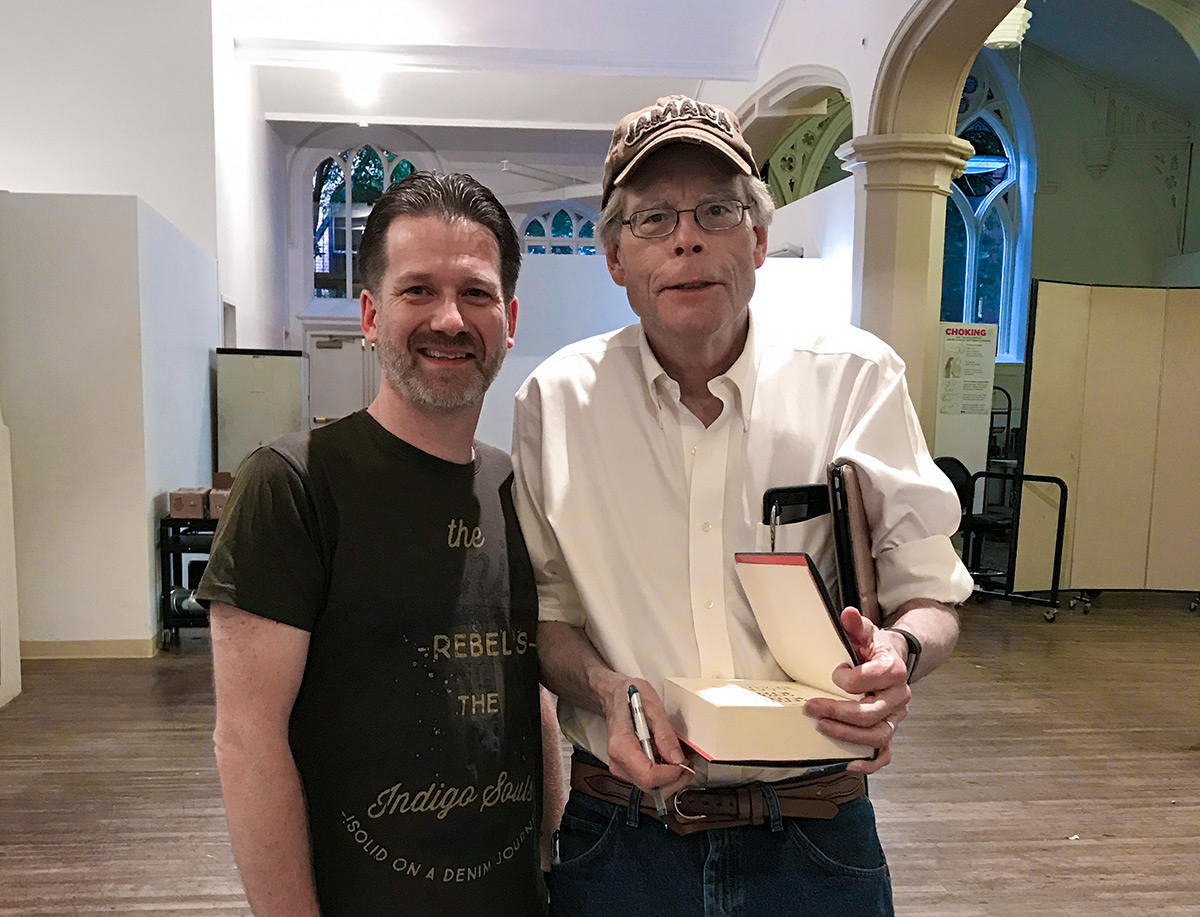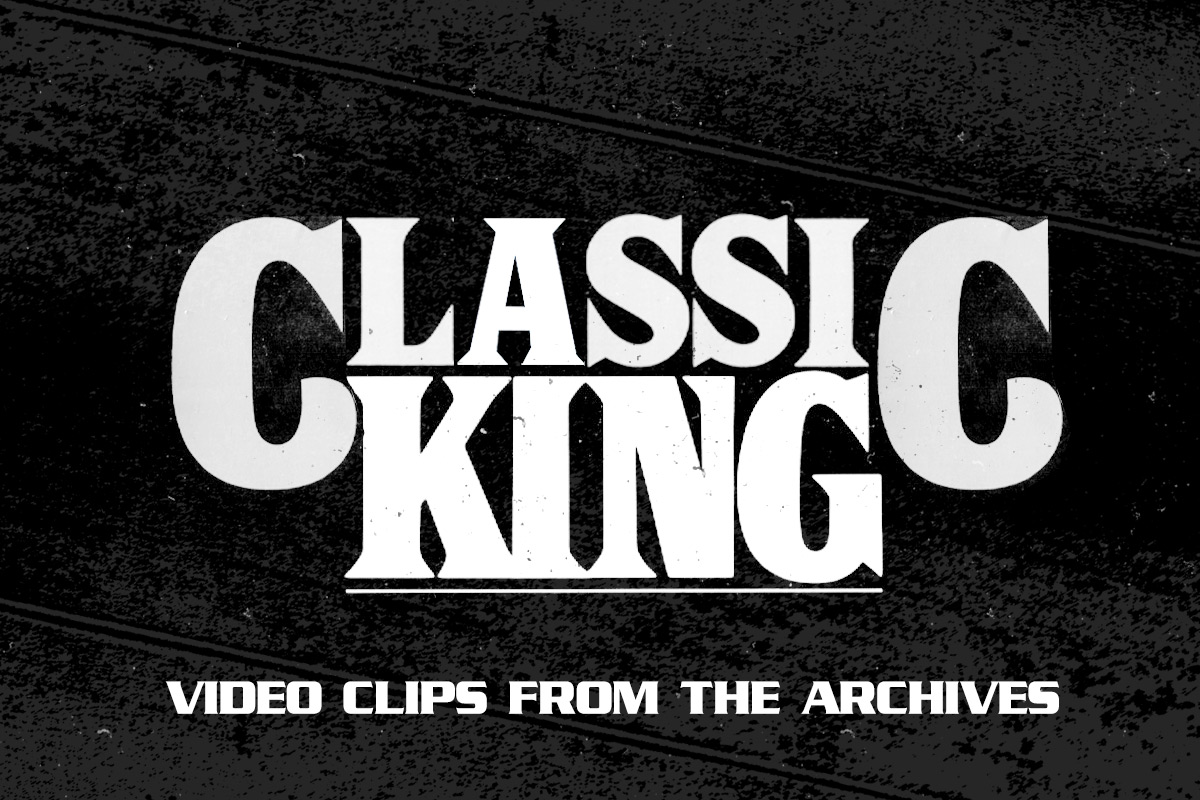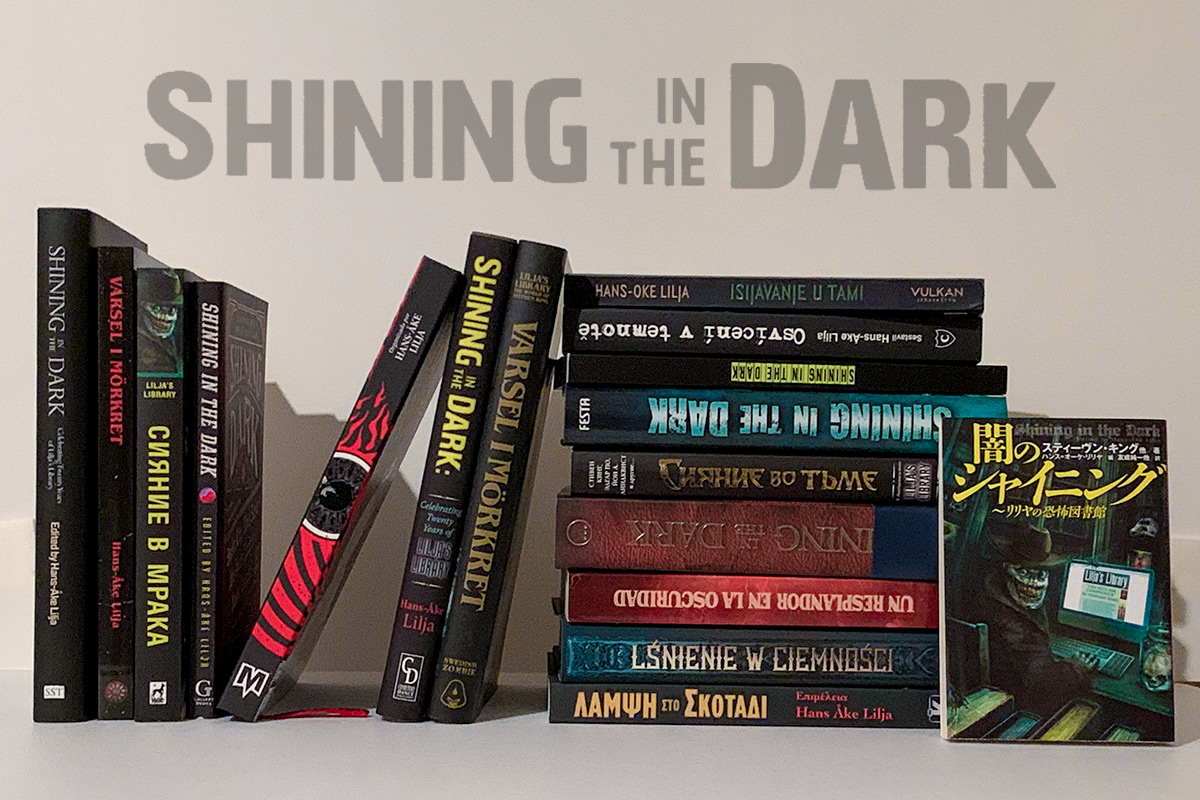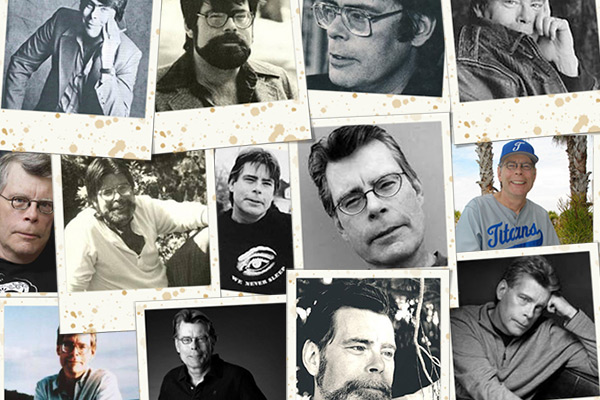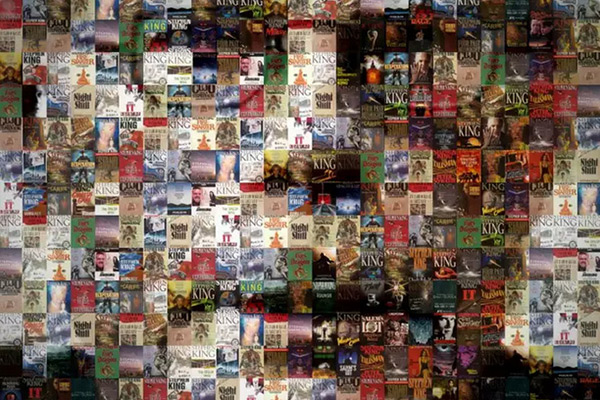Frank Darabont
Posted: March 25, 2008
_
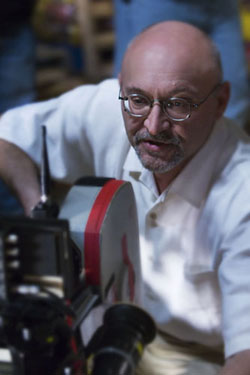 Lilja: Hello Frank! I hope everything is well with you.
Lilja: Hello Frank! I hope everything is well with you.Frank Darabont: Everything is great, thanks for asking.
Lilja: So, you know I’m a big fan of The Mist.
Frank Darabont: Yeah, thank you very much.
Lilja: And I’m very happy to see that it’s out on DVD soon. I watched it this weekend. And I have to say…well I actually watched the black and white version…
Frank Darabont: Oh, you did, what did you think? Be honest, which one do you like better?
Lilja: I actually liked the black and white best.
Frank Darabont: Ah, excellent
Lilja: It makes the movie a bit darker and more chilling.
Frank Darabont: Yes, oh good, I’m glad.
Lilja: What kind of reactions have you gotten on the movie? Actually the DVD isn’t out yet so…
Frank Darabont: The DVD is coming out here on the 25th but for some reason a lot of people has seen it. I handed it out to some friends of mine, like Tarantino and guys like that and I think the reaction to the black and white is bigger then I realized that it was going to be. Everyone is kind of silly excited about it. And the people who have seen it in black and white have gotten back to me and their reaction is fantastic. It just tells me it was a pretty good idea to do it that way...for people who enjoy that kind of approach.
Lilja: Did you actually plan to release it in black and white when you shot it or was it just a bonus that the studio was willing to release it on the DVD?
Frank Darabont: Well, I was always… even when we were shooting, even before we were shooting I know I was going to shoot it in color obviously but I was hoping that a black and white conversion might be good for the movie. You can never really tell until your doing it. I was very pleasantly surprised at how well it did adapt, retimed as a black and white film. It was the Coen brothers who gave me the idea really because they shot The Man Who Wasn’t There in color but they released it as a black and white film. They had retimed it for a black and white release and I thought that that looked so good; I thought the same thing might apply to my film. But I think this is the first time anyone has released both versions, both the color and black and white version.
Lilja: I hope you’re setting a trend because it was quite a different experience to see it in black and white. It was also very nice to have both on the DVD.
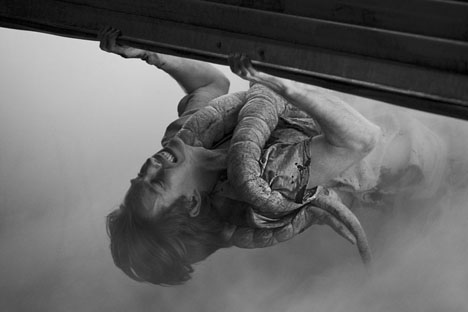
Frank Darabont: Yeah, it’s a totally different viewing experience I think and maybe it’ll be a trend, who knows? We’ll see how this goes over but my fellow filmmakers are very intrigued by it.
Lilja: But I also think it has to be a very special type of movie that can do the transaction from color to black and white and still be as good or even better.
Frank Darabont: Yeah, it totally depends on the movie I think. It totally depends on the material and the photography.
Lilja: When you read reactions to the movie it seems that most fans really like the movie but it also seems like the ending has divided the fans into two camps. One who really loves it and one who doesn’t like it at all.
Frank Darabont: Who hates it. Let’s use the proper word. [laugh] You know, I always knew that it was going to be a very divisive and polarizing ending in that way. I know that some people would absolutely love it and that some people wouldn’t but it always felt like the correct ending to me.
Lilja: Yes, I agree.
Frank Darabont: And there is a part of me that takes great pleasure in the fact that it does divide the audience in that way because it indicates that the movie took the right chances.
Lilja: Yeah, because you were actually offered to do it as a big budget movie if you changed the ending, right?
Frank Darabont: Yes, I had someone offering me 30 million dollars to make the movie on that basis and I remember asking this guy “what do you think the ending should be?” and he said “I don’t know”. [laugh]
Lilja: [laugh]
Frank Darabont: And I said, “I don’t know either”. This is what makes sense to me. I suppose I could come up with some bullshit ending just to honor that desire but on the other hand I think I’m a little too old to sell out that way. I see the movie in my head and I feel I have to pursue that so I went and made it for Bob Weinstein for almost half the budget.
Lilja: I’m very happy that you stuck to the original ending and not a happy Hollywood ending.
Frank Darabont: Thank you, me too. I still don’t know what the other ending would be.
Lilja: No, I don’t think there is another ending that would actually work. It’s like you say in…I think it’s in the commentary, that every century needs a movie like Night of the Living Dead where everybody dies in the end…
Frank Darabont: Yeah, that’s what Stephen King said to me when he read this ending originally. I was very concerned. You know the ending was taking a chance, taking a risk and I wanted to make sure it was in Stephen King’s language as well. I wanted to know that I had his approval on something like that and that was his reaction. He said “I love this ending, I’m sorry I didn’t think of it” and “every generation needs a movie like this where nothing turns out well”. This is a horror movie. It should horrify and disturb the audience.
Lilja: And the fact that you placed the woman who leaves the store in the beginning of the movie as one of the survivors makes the end even more chilling.
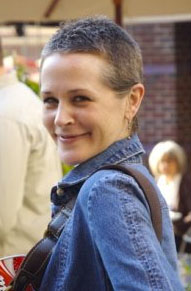 Frank Darabont: I loved that touch. That was not my idea. I have to give credit to Jeffrey DeMunn, one of my actors in the film who plays Dan. Wonderful actor, I work with him all the time. And the woman who played that scene in the market, she was so good that a few days after she did it Jeff came to me and said “Boy, she was wonderful, what do you think of the idea of maybe having her there at the ending?” And I just thought it was a fantastic idea so I stole it [laugh]
Frank Darabont: I loved that touch. That was not my idea. I have to give credit to Jeffrey DeMunn, one of my actors in the film who plays Dan. Wonderful actor, I work with him all the time. And the woman who played that scene in the market, she was so good that a few days after she did it Jeff came to me and said “Boy, she was wonderful, what do you think of the idea of maybe having her there at the ending?” And I just thought it was a fantastic idea so I stole it [laugh]Lilja: [laugh] Yeah, it was perfect seeing her go by.
Frank Darabont: And that is credit to Jeffrey. And also credit to her, to Melissa, because she was just wonderful in that part.
Lilja: When I saw the movie I actually think it benefitted from being a low budget movie and done very quickly, is that your feeling too now that it’s done?
Frank Darabont: Definitely my feeling and it was even my feeling when we were shooting it because there were so much wonderful ragged energy going into the filming even as we were shooting it and I thought “this is wonderful, that we’ve done it on this basis” and the truth is that I wanted to embrace the aesthetic of the low budget horror movie so we embraced it on a very practical level which is “OK, well then let’s to it really low budget”. [laugh] and we have. Some of my favorite movies in the genre were made that way and it felt like an honest way to do it.
Lilja: But it’s not the usual way for you to make your movies?
Frank Darabont: No, completely different, completely different style, completely different approach. It was very exciting for me to do something completely outside my previous knowledge, to get me out of my comfort zone of what I do and what I know how to do and try something completely different. And part of what allowed that was indeed the low budget because if I had twice the money maybe I would have been a little more careful in how I shot it. As it was I had no time to be careful at all and that I think brought this wonderful energy in to this thing. And it was really fun to do it that way I have to say.
Lilja: It was really fun to listen to your commentary to the movie and especially where you describe how easily and with quite small means got the right feeling and the effect that you wanted.
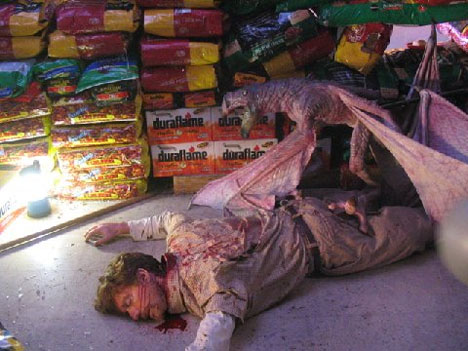
Frank Darabont: We had such a wonderful team in place. Greg Nicotero, Erin Borel and so many other people I’ve worked with in the past on low budget films. And it’s, in a weird way, very liberating to have to come up with clever solutions rather then just throw money at a problem. You have to come up with a clever solution on how to do something and when you have a team like that it’s a marvelous because we’re all working towards the same goal.
Lilja: And now that the movie is done, is this something you wanna do again with another movie or is it back to your normal way of making movies?
Frank Darabont: Well, I don’t wanna do it all the time [laugh] cause it’s a tremendous challenge, I’d like to have a little more luxury of time next time but when I do The Long Walk that would be even more low budget then this one was, I’m certain of it.
Lilja: Do you have any plans for The Long Walk now? Are you working on it at the moment?
Frank Darabont: It’s on one of the burners on the stove you know. It’s not on the front burner at the moment but I imagine it’s going to be something that I’ll do probably within the next five years. I don’t have any immediate plans…
Lilja: It will be very interesting to see that one made into a movie.
Frank Darabont: That one will be very, very faithful to Stephen’s story, even more faithful then The Mist was. But it doesn’t bear a huge budget because it’s a very existential strange little story. To do it faithfully then it winds up being a strange little movie so not a blockbuster, just a very interesting film I think.
Lilja: I think that potentially it could be a very good movie if it’s done right.
Frank Darabont: Thank you. Well, I think it’s one of Steve’s best stories; it’s so strange and brilliant isn’t it?
Lilja: Yeah, it’s amazing to be able to make a story about people who are just walking.
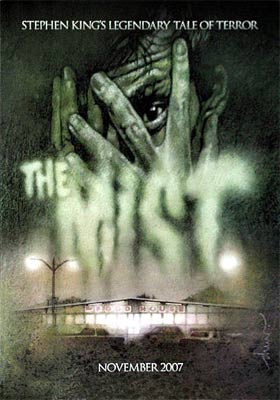
Frank Darabont: Exactly! And what it is, is Stephen King meets Eugene Ionesco and I definitely want the movie to have that same feeling.
Lilja: I did an interview with Stephen King earlier and he mentioned that you wanted him to play a part in The Mist.
Frank Darabont: Yes, I did. I wanted him to play the biker. I wanted to really get a performance out of him and really treat him like any other actor in the piece rather than “Oh, here is the Stephen King cameo”, you know. So, I wanted him to grow a big biker beard and when I mixed the film and the sound I’d pitch his voice just a bit lower so you wouldn’t necessary immediately recognize his voice. I wanted to see if I could fool the audience into thinking it was just another actor…
Lilja: It would have been very nice to have seen him in that part.
Frank Darabont: Yeah, I was really looking forward to that but he didn’t have the time to do it, I’m sure he told you…
Lilja: Yeah, but you got a lot of references to him anyway; the books, The Dark Tower poster and a lot of other things.
Frank Darabont: Absolutely and also the good news of not being able to use Steve is that I was able to use Brian Libby who is a very old friend of mine and he is a very good reference to Stephen King because he was in The Shawshank Redemption and he was in my short film The Woman in the Room years and years ago so it was wonderful to work with Brian again and give him an opportunity on screen again. He’s just a terrific presence.
Lilja: Yeah, very nice.
OK, thank you very much for doing this interview. I hope we’ll talk soon again.
Frank Darabont: Very soon, I so appreciate it
Lilja: Alright, take care, bye
Frank Darabont: Take care, bye.

